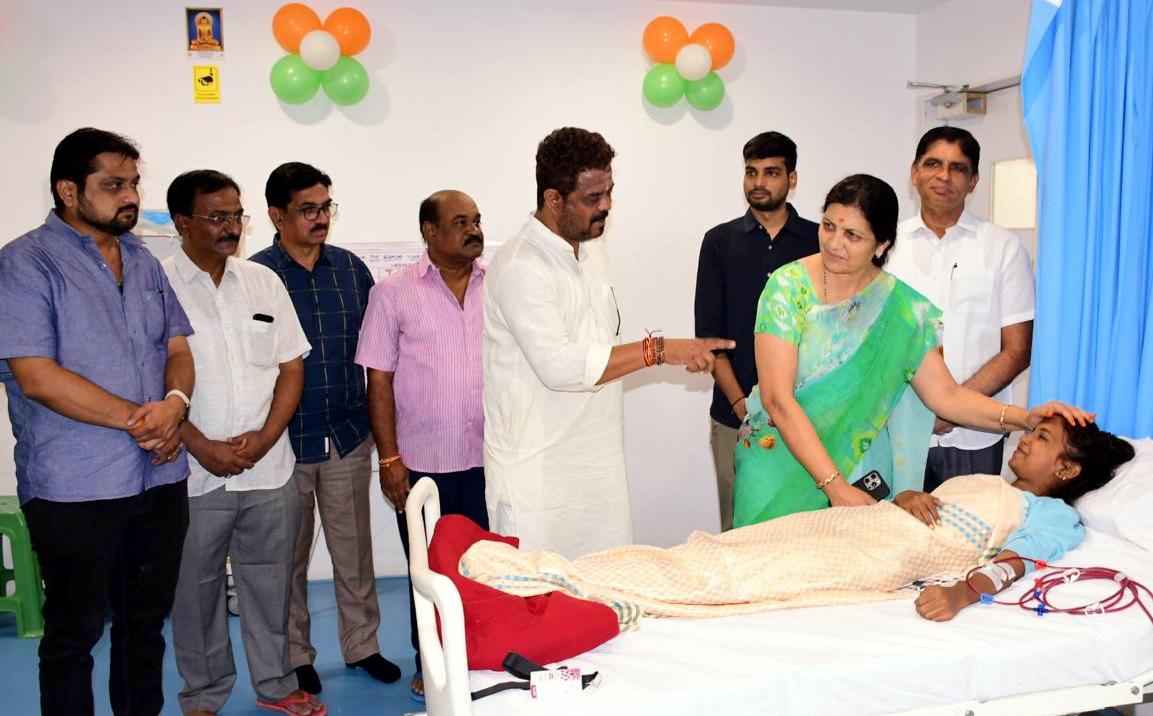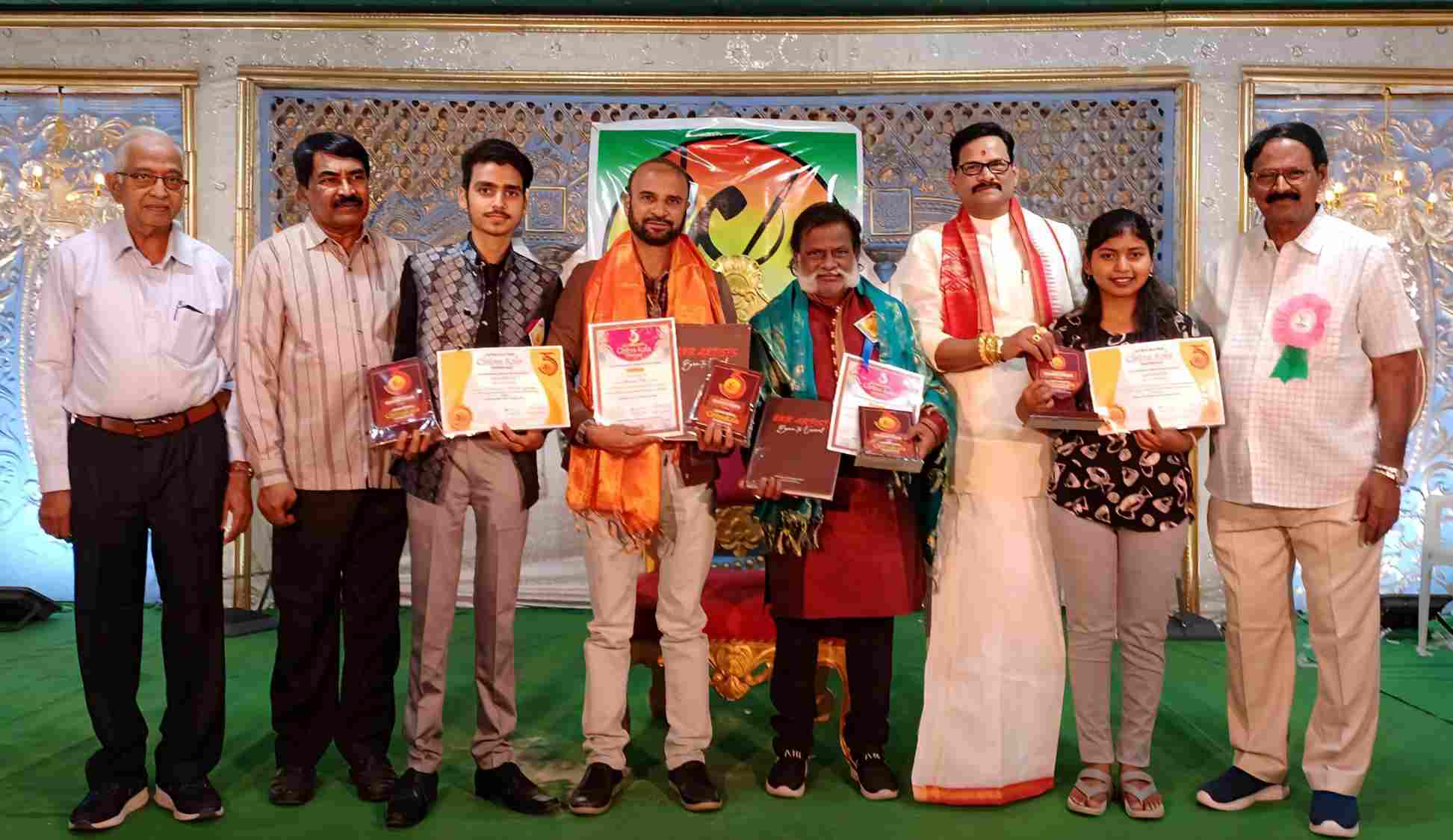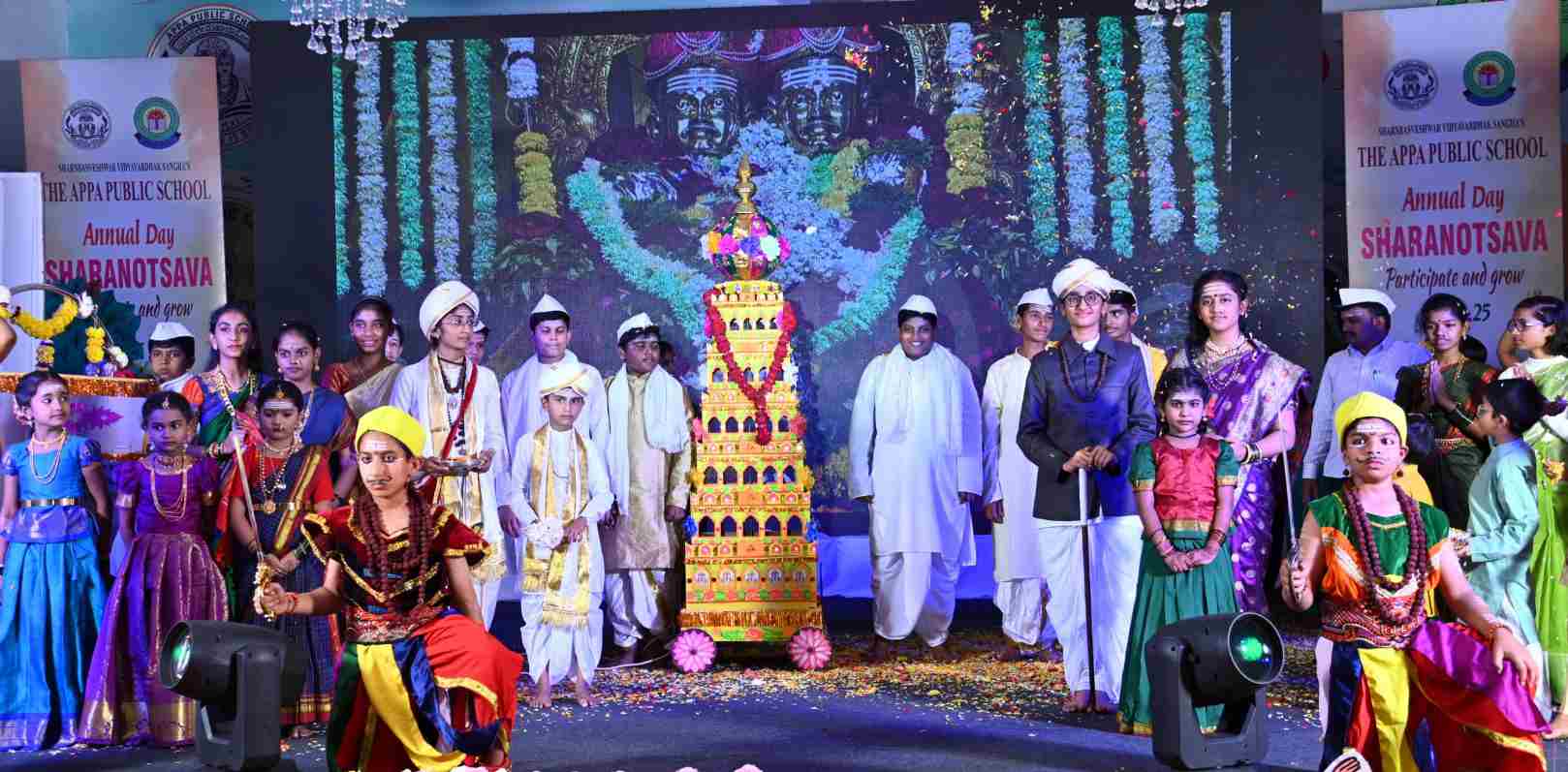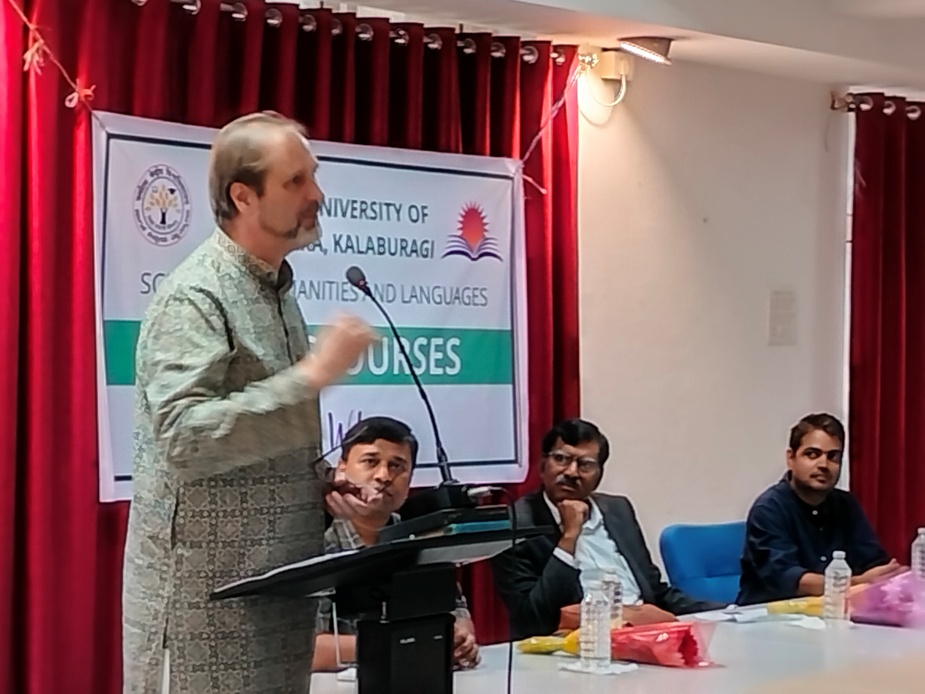Special Talk on ‘Sufi Music and Poetry in the Deccan’ held at CUK
KALABURAGI: “Humility, humbleness, generosity, love and affection are the major teachings of Sufi saints. Sufi Saint Moinuddin Chisti says be magnanimous like Sun, humble like earth and generous like river” said Prof. Scott Kugle, Emory University, Atlanta, America. Yesterday he was delivering a lecture on ‘Sufi Music and Poetry in the Deccan’ organized by School of Humanities and Languages, CUK.
He further said “Sufism is a mystic body of religious practice found within Islam which is characterized by a focus on Islamic purification, spirituality, ritualism and asceticism. Sufi saints talk about intimate relationship between God and devotee. They say God should be loved intimately without any expectations. Khwaja Banda Nawaz Gesudaraz is one of the earliest Deccani Urdu Sufi Saints. He is the first Sufi saint in the Deccan to write in both poetry and prose. Later many Deccan Sufis followed him. Deccani Urdu is different from modern Urdu.
Sufi Saints adopted their writings to local languages, poetry and music. Hence we see Khwaja Banda Nawaz writings in the form of both prose and poetry, whereas many northern Sufis writing only poetry. It may be because of prose dominance in the Kannada literature during that time.
Sufism played very important role in Indian context. Persian was international and administrative language. It was very difficult to connect with local people. So they started adapting to local languages. Hence Sufi literature was created in Deccani Urdu, Gujiri, Hindali and many other local forms of Urdu and Persian languages. Sufi saint Shahabhajan was great musical master. His poems are very musical and they should be sung in Indian ragas.”
Talking about the structure of the Sufi poems he says “they are much simpler, easy to understand by the common people. These are much simple and looser versions of Gazal and Dohas. Today they are sung in different occasions like Urus, family ceremonies and other public events. The speaker or the writer position in the Sufi poems is not fixed. It keeps changing. It may be God and devotee relationship, lover and loved one. It is all about dissolving one’s ego. They talk much about knowing oneself. One who knows himself or herself will be able to know the God.”
Talking about the Sufi music and poetry he said “Sufi poetry is connected with Sufi music. Kawaali is form of reciting Sufi poem. There are various forms of Kawwalis like Kashmiri, Bengali, Bhawali traditions; different regions have their own form of Kawwalis.”
Talking about the exchange of traditions and growth of Sufism in India he said “after Khwaja Banda Nawaz Sufi tradition in the Deccan has developed and become very rich. Many northern Sufi saints came to south and similarly southern saints went to north this has lead to the birth of mixed tradition. During the Moghal period it has reached the pinnacle.”
Replying to a question about how Deccan Sufi poetry and music differ from other parts of India? He said “there is no much difference. Delhi Kawwali moved down to Deccan during Muhammad bin Tughluq and developed here. Images of Persian, Arabic and Urdu are similar but localised with local linguistic and language atmosphere.”
Hon’ble Vice Chancellor Prof. Battu Satyanarayan delivered presidential remarks and said “American professor is working so much on Deccan whereas we have forgotten our own region. If this trend continues in the future we have to depend on foreign authors for our history and heritage. His commitment and dedication to research is commendable and inspirational to our professors.”
Dr. Kumar Mangalam anchored and welcomed the gathering, Dr. Swapnil Chapekar proposed vote of thanks. Prof. Vikram Visaji, Prof.Shivaganga Rumma, Prof. Basavaraj Donoor, Prof.Bhimarao Bhosle, Prof Sunitha Anil Manjanbail, invitees, Faculty members and students were present.




